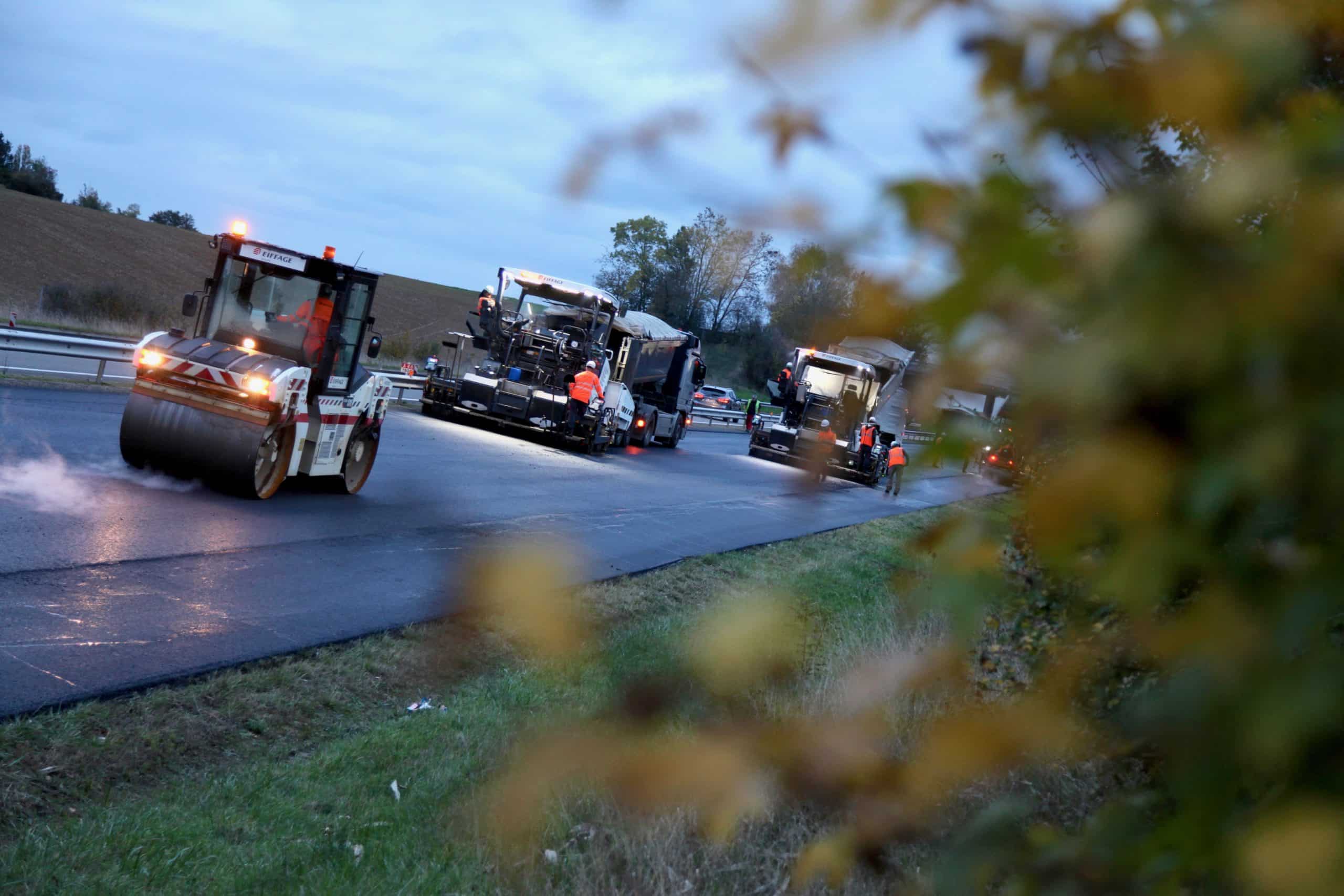
BIOPHALT, a high-performance plant-based asphalt Developed by Eiffage Route and Tested by APRR on the A40 motorway
Eiffage has developed a plant-based asphalt composed of a bio-sourced binde, derived from…
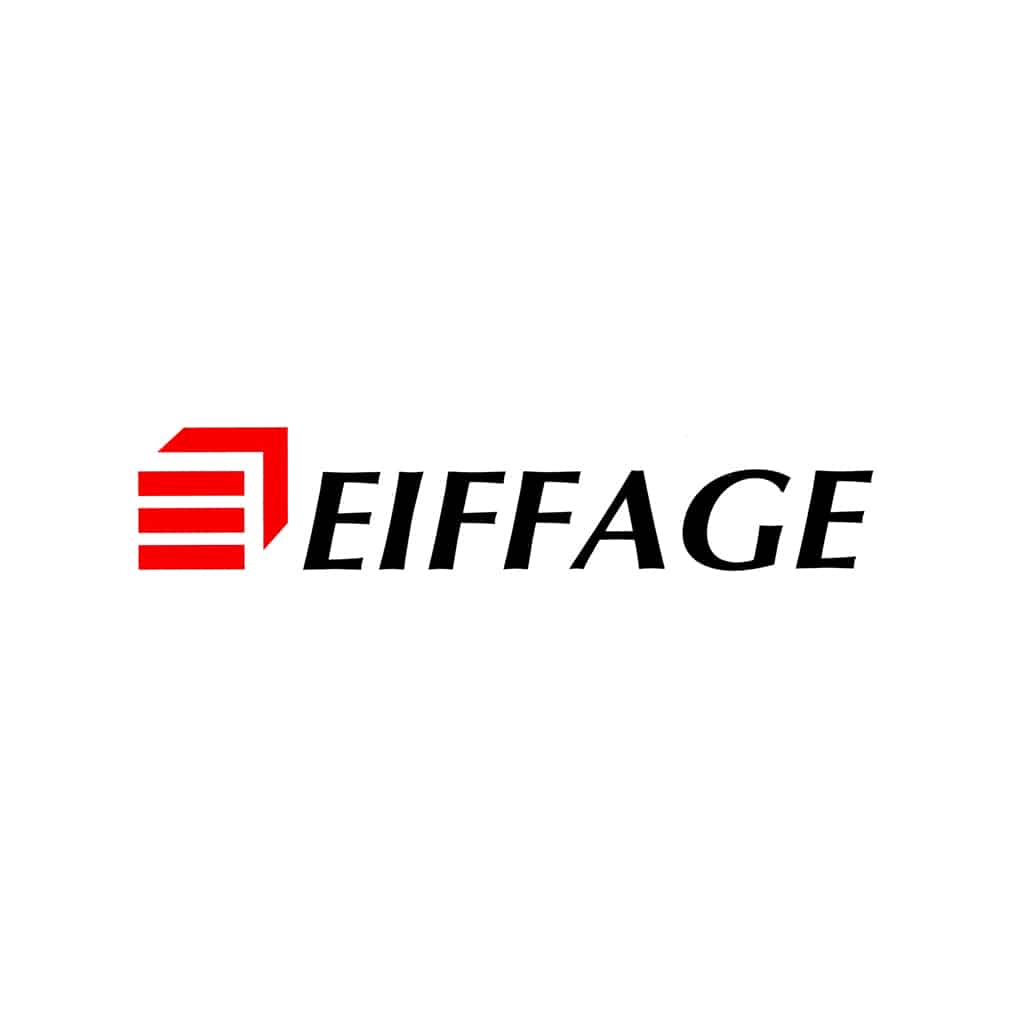
The project involves the application of an eco-friendly and permeable road-surfacing mix on a stretch of the ViaRhôna (an 815 km cycle route that extends from Lake Leman to the Mediterranean Sea running alongside the Rhône river), which passes across Île du Beurre island located on the Rhône.
Île du Beurre island is a protected natural area under APPB classification (French prefectural order for biotope protection), home to a colony of beavers as well as a large population of birds (an ornithological observatory was installed to monitor it). The area is also subject to flooding from the Rhône river that borders it.
The project was carried out within a context of strong pressure from local environmental associations that were opposed to any artificialisation of the green pathway.
The project’s main objectives therefore were:
- Reduce carbon emissions thanks to the application of a mix produced at a lower temperature, using a plant-based binder that provides carbon storage.
- Obtain a light-coloured surface, effectively helping to prevent heat islands.
- Improve water management by creating a road surface that is permeable.
Project owner: Auvergne-Rhône-Alpes region.
Technical constraints:
The need to avoid vibration – Smooth compaction
Issue of waterproofing linked to flooding and the infiltration of rainwater – Use of permeable BioKlair®
Difficulty of access (no motor vehicles allowed) – use of “small” construction machinery (Sambrons-powered mini paver), manual application for observatory access routes
Integration into the landscape – BioKlair® formulated with local light-grey aggregates (Chênes quarry approximately 30 km away).
The decision was made to use the eco-friendly and permeable BioKlair® mix, combining local aggregates and a light-coloured plant-based binder, designed and manufactured by Eiffage Route (granular size 0/6 mm over a thickness of approximately 4.5 cm for a total tonnage of 350 T of mix applied).
Specially adapted to cycle paths and other soft mobility solutions, this plant-based binder produced at a lower temperature is made from co-products of the forestry and paper industry, combined with a synthetic resin. BioKlair® improves water management because it is designed to be permeable, allowing runoff water to infiltrate the soil (e.g. heavy rains and flood waters). In addition, Bioklair® reduces the temperature of the road surface during periods of high heat, effectively preventing urban heat islands (UHI). Its light-coloured aggregates allow it to better reflect and diffuse solar energy (Albedo effect), compared to a conventional bitumen asphalt.
The work was carried out over a two-day period at the end of November, with an ambient temperature of between 4° and 10°C.
The mix proved very easy to work with, presenting good overall appearance and a very high level of permeability. The finish obtained (light brown) was in line with the objective of integrating the project into the surrounding environment (blending in with the natural earth footpaths). Since it was applied, the mix has lightened up as a result of the effects of UV rays (a natural phenomenon for a light-coloured mix bringing out the natural color of the aggregates).
on which the project has a significant impact
Scope 1- Worksite emissions
(the constraints of the site required the use of smaller machinery, which is less energy intensive and emits less CO2).
Quantification:
Scope 3 – Inclusion of a bio-sourced component in BioKlair® provides the mix with carbon storage properties.
Quantification :
Emission absorption : Inclusion of a bio-sourced component in BioKlair®
The biogenic carbon captured by trees during their growth can be attributed to their by-products; BioKlair® is formulated using by-products of the French forestry and paper industry. We can therefore allocate part of the carbon trapped by the trees used in this industry under the so-called “allocation” principle. This allocation can be economic (the carbon footprint of the products is distributed according to their price and their weight), or mass (based on the ratio of the quantity of products and co-products at the output of the transformation process). The principle of mass allocation has been adopted for the Eiffage Route range of plant-based solutions.
290 000 € excl. VAT
November 2019
Tupin-et-Semons (Rhône)
Project aligned with the preservation of the surrounding environment, blending in with the landscape and respect for biodiversity at the site.
Respect for local wildlife during construction
The project meets several SDGs:



Highly reproducible.
CIRR (Roads & Streets Innovation Committee): BioKlair® winner in 2020, future project monitored by Cerema (technical services of the Ministry of Ecological Transition).
Julien Van Rompu julien.vanrompu@eiffage.com Jérôme DHERBECOURT : Jerome.DHERBECOURT@eiffage.com

Eiffage has developed a plant-based asphalt composed of a bio-sourced binde, derived from…
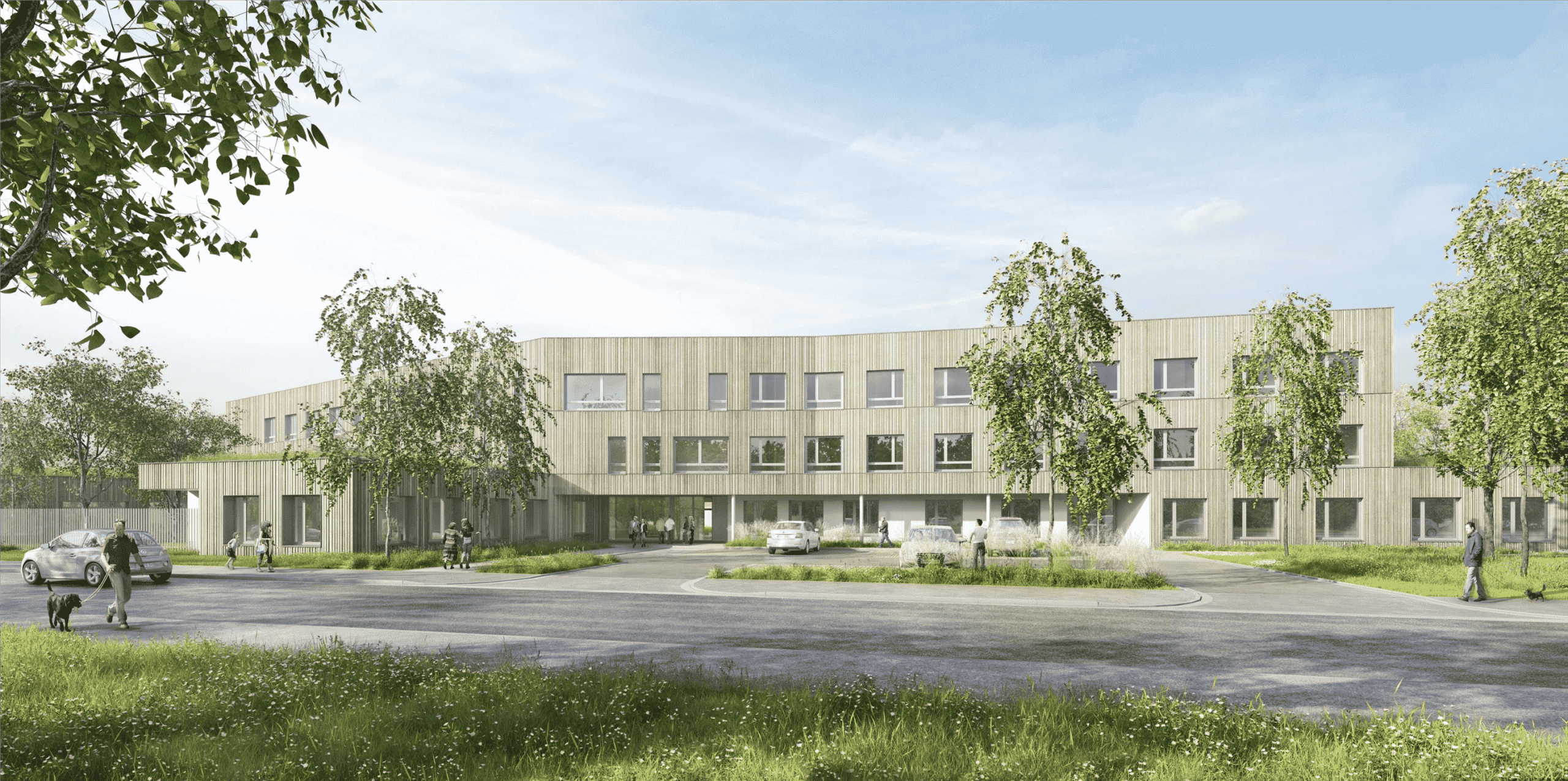
This project aims to build France’s 1st passive low-carbon EPHAD nursing home (Etablissement d’Hébergement pour Personnes Agées..
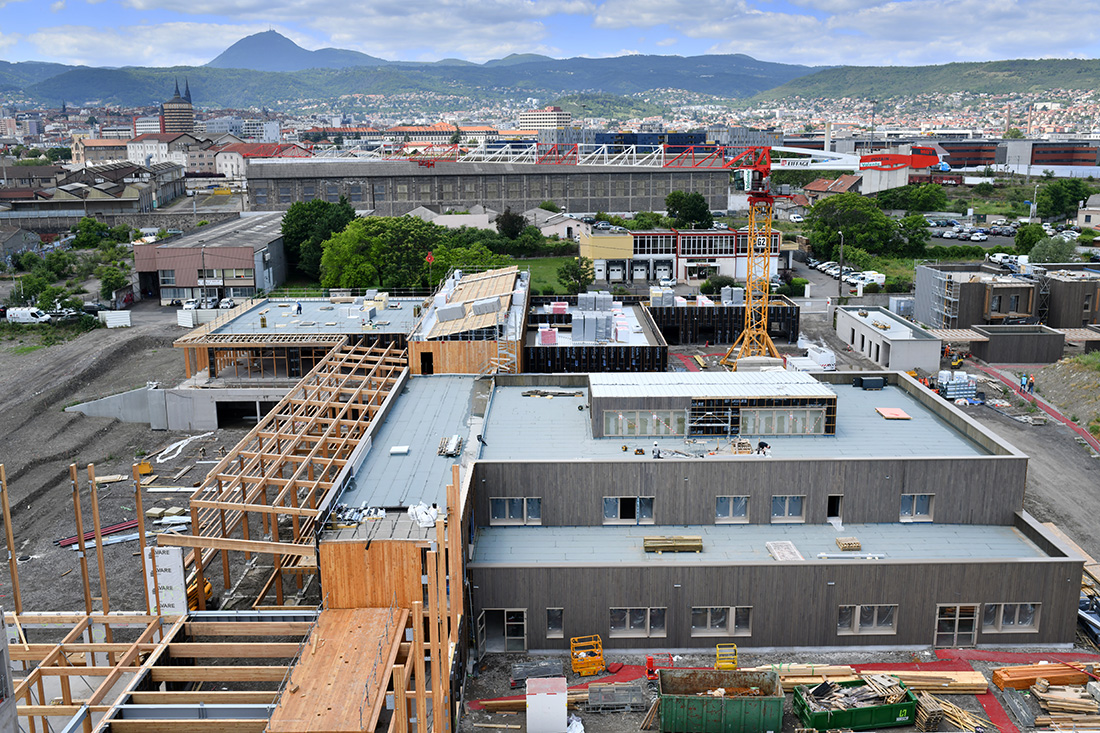
Eiffage is building a new high school in the Clermont urban area, under a design and build contract…
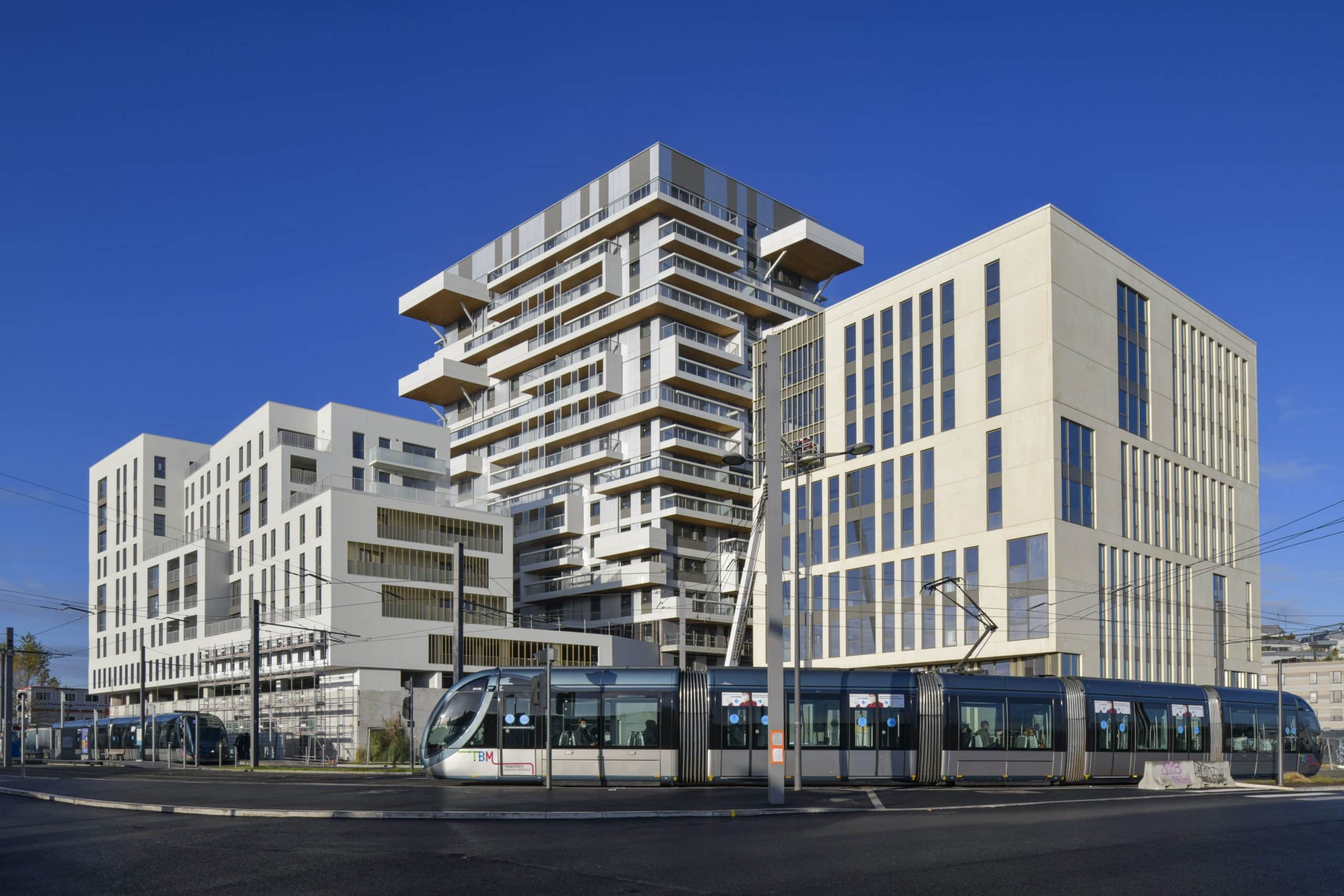
The Eiffage group is building the Hypérion tower in Bordeaux (Gironde). The tower has a carbon footprint of 870 kg CO2 eq. / m² floor area, which is 45% less than a conventional building…
AFEP (Association of French large companies) is an association representing 111 of the largest companies operating in France. It participates in the public debate with the ambition to provide pragmatic answers in favour of the development of a competitive and sustainable French and European economy, conducive to the growth of all companies.